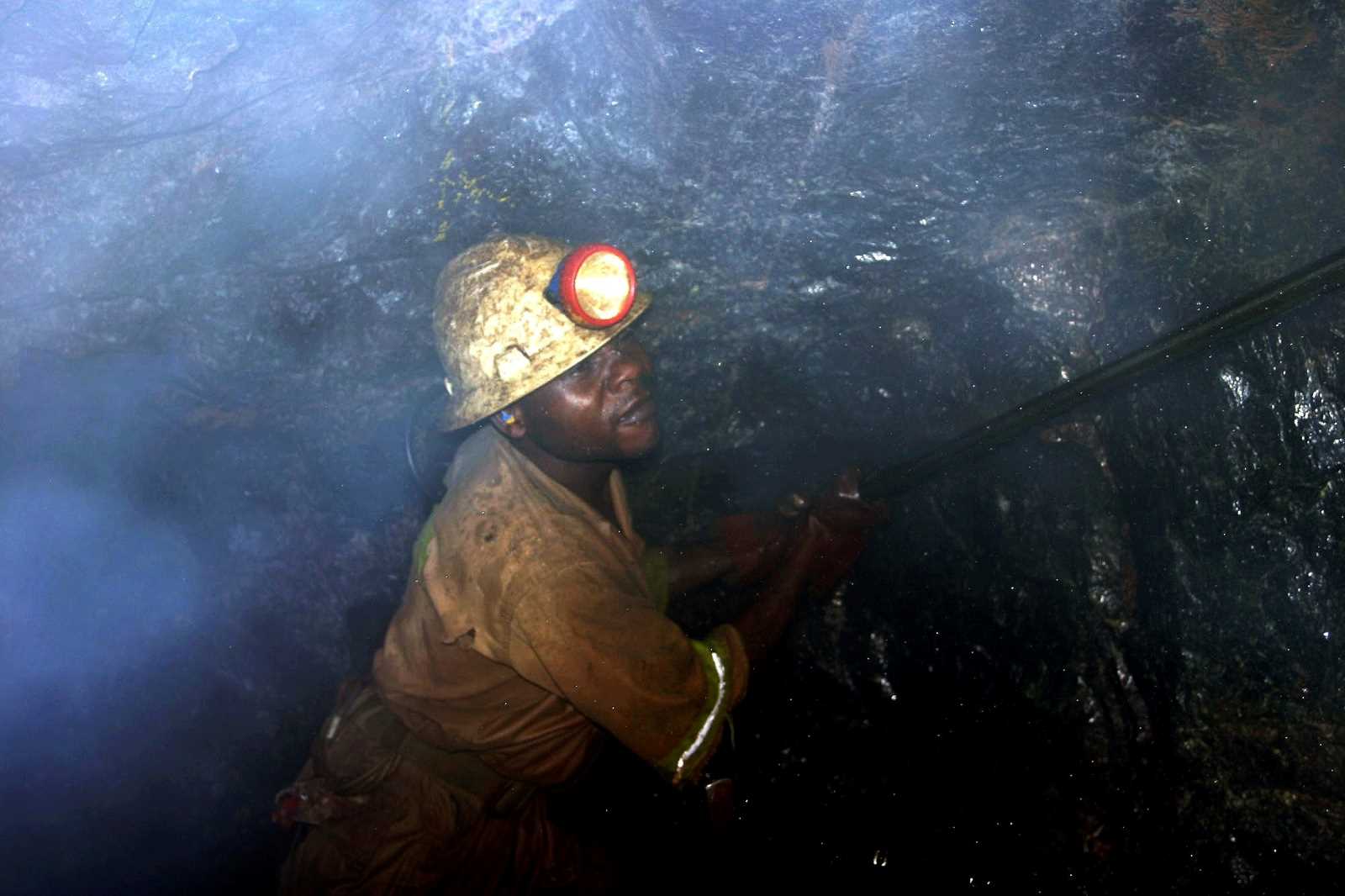Global affairs
Pecking order of nations

What is China contributing to funding the UN sustainable development goals (SDGs)?
That is hard to say, not least because we don’t have any clear definitions of what counts as SDG finance. Government spending is relevant, and so are private transactions. Investments made domestically may play a role, and so may investments made abroad.
But do the SDGs serve as guidelines for Chinese policymaking?
Yes, the Chinese government endorses this agenda, and not only rhetorically. But we must bear in mind that the agenda is quite complex. There are some conflicting goals. In the eyes of the Communist Party, fighting poverty must initially have top priority as people first of all need sufficient food, clothes and housing. For a long time, this was the reason why China kept postponing environmental protection domestically; but that has changed. Europeans, by contrast, typically associate sustainability with environmental protection and climate-change mitigation.
But isn’t China guilty of double standards, for example, when it finances new coal-power stations in less-developed countries while striving to phase out fossil fuels at home?
Well, the people I am in touch with in China would tell you that those partner countries urgently need energy and that the idea is to help them to use fossil resources in ways that minimise the climate impact. What they are saying today actually resembles how German business leaders responded a few decades ago when asked whether they were not bypassing European environmental and social standards by investing in China. No, not entirely, they would claim, insisting that their own corporate standards were superior to what was otherwise the norm in China.
China’s approach seems cynical nonetheless. The leadership knows that the use of fossil fuels will have to be discontinued soon, and its foreign partners will end up with new, but no longer viable infrastructure.
No, I don’t think that Beijing is cynically trying to sell partners outdated technology. From the Chinese perspective, south-south cooperation involves countries that suffered under imperialism and colonialism and are now pursuing common interests on an equal footing. The Chinese government assumes that all parties involved know what they are doing, assess risks diligently and are keenly aware of their countries’ interests.
The Chinese government considers the People’s Republic to be one of many developing countries. Does that still make sense in view of its growing clout, not only in world trade, but as an international financier as well?
Well, arguably China’s rise over the past four decades was the most spectacular development success of all times. Accordingly, the Chinese leadership is extremely self-confident. They know what worked, and they want to make it work again elsewhere in cooperation with partners. It also matters that some regions in the People’s Republic have developed much less so far. Moreover, the nation’s per-capita income is lagging far behind the USA, Japan and Western Europe. On the other hand, it is obvious that the self-description as a developing country is no longer entirely convincing. In Africa, for example, people increasingly disagree with it.
Chinese agencies are funding major infrastructure projects abroad in the context of the Belt and Road Initiative (BRI). Is this policy sustainable in every sense: environmental, economic and social?
That is certainly China’s aspiration, but let me repeat that it is debatable which dimension of sustainability is the most important in any specific place at any given time. It would be wrong, moreover, to see the BRI as a conclusive and coherent strategy. It really is a rather general doctrine for policies relating to foreign affairs and international trade. The BRI label can be used for a great variety of things. It is striking, moreover, that the strategy cannot fail because no criteria for success have been defined. The Chinese leadership sees the BRI as an offer to the world to apply what worked in China elsewhere to drive development there. The argument is that China first built roads, ports and other kinds of infrastructure, and what followed was industrialisation with masses of new jobs. Beijing wants to replicate that model, and the new multilateral Asian Infrastructure Investment Bank (AIIB) serves that purpose too.
But isn’t it obvious that the BRI and the AIIB are vehicles for the pursuit of Chinese interests?
Yes, of course, but that is absolutely normal. Western governments’ self-interest is obvious when they engage in bilateral or multilateral cooperation. From the Chinese perspective, the infrastructure programmes are beneficial in many ways. They facilitate trade. They enhance China’s geostrategic influence. In many cases, they contribute to keeping Chinese companies busy, which would otherwise have to cut overcapacities. What is being built, moreover, is infrastructure that partner countries want and often desperately need.
Some BRI loans have led to over-indebtedness. When Sri Lanka was unable to service credits, China claimed a newly built harbour and took control of this facility for 99 years. Kenyans fear that their government may have offered the port of Mombasa as collateral for loans taken to build railway infrastructure. Does Beijing see these matters?
The people in charge understand full well that the Sri Lankan case has badly hurt their reputation. They will do their best to prevent something like that from happening again. They probably did not foresee how things would develop in Sri Lanka and certainly did not want their public image to suffer.
Please explain.
The Chinese tend to try out things without premeditating every detail that might go wrong. The contract with Sri Lanka gave China the right to seize the port, so that is what they did. It does not mean that they wanted it to happen right from the start. The government knows that it needs partners internationally, and that partnerships hinge on successful cooperation. It has certainly understood by now that the assumption that all partners would always fully consider their countries’ interests was naïve. Chinese colleagues tell me that they find it mind-boggling how dysfunctional governments have wrecked entire countries – for example in Venezuela and Zimbabwe.
China is not corruption free itself.
No, of course not, but ever since Deng Xiaoping, the Communist Party has always focused on developing the country. Its rule is authoritarian, but it closely observes the mood of the nation. As it normally does, it is experimenting in the BRI context, testing what works and what the implications are. The regime is a learning system. The government is now trying to find solutions to over-indebtedness and certainly wants to prevent such problems from arising in the future, not least for the sake of its own reputation. The willingness to cooperate with the International Monetary Fund and western governments in this context is growing. Ultimately, the multilateral system must also prove it is able to learn.
But multilateralism is currently under attack – especially from US President Donald Trump.
Yes, and the way he is operating in the trade war is most unwise. Initially, many Chinese economists thought he might be putting pressure on China in a way that would lead to meaningful reforms. That had been the case when China had to adopt to the rules of the World Trade Organization (WTO) in order to become a member. In the meantime, however, Trump’s demands sound like ultimatums for unconditional surrender, and not only the Chinese government finds that unacceptable. Apparently, the USA is not interested in defining sensible shared rules, but wants to establish a pecking order of nations. Accordingly, multilateral issues – including SDG achievement – are becoming secondary. That is the way many Chinese see it even if they happen to have strong liberal leanings. Since the global financial crisis, the west’s standing as a role model has suffered considerably. Today, those who have always said that democracy means instability feel reconfirmed by Trump’s erratic action – but also by United Kingdom’s increasingly bizarre Brexit scenario.
Could Trump achieve more if he teamed up with the EU and Japan to put pressure on China within WTO settings?
Such an approach would at least comply with international rules, and China would appear to be an equal member with equal rights. The current developments are depressing. Many Chinese trade experts know that compromises are necessary, and that they would actually serve their country’s interests – for example, in regard to intellectual property or foreign investors’ rights. For good reason, the administration of US President George Bush wanted China to become a responsible partner in multilateral affairs in the nought decade. Today, the US itself is no longer acting responsibly.
Doris Fischer is a professor of Würzburg University and specialises in China’s economy.
doris.fischer@uni-wuerzburg.de











